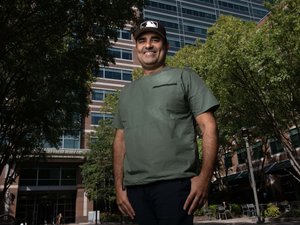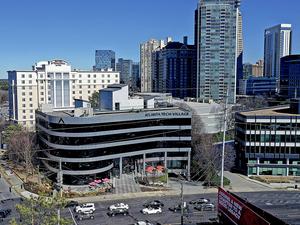
Amari Ruff, co-founder and CEO of Sudu, knew he wanted to shake up the trucking industry.
A serial entrepreneur, he had just come out of the telecom industry and saw logistics as an opportunity — especially when applied to the trucking world where drivers, he felt, "were on the bottom of the Totem pole. I wanted to build a culture that was more tailored to the truckers themselves," he said.
Ruff dove in. "I got myself connected with [a] trucking association in Atlanta, took a ton of glasses, began engulfing myself in the industry," he said. He quickly learned that one of the biggest struggles for businesses within said industry was access to quality freight opportunity.
"90 percent of companies have six or less trucks," he said. That makes hitting capacity hard to do. "If we harness them together, leverage the size of the group …[we could get] trucking opportunities. To do something like that, we'd have to use tech." Ruff then ended up pivoting the company, then dubbed R2 Trucking Solutions, to Sudu's current model, which relies heavily on technology to increase supply chain efficiency.
"What we do is we take pride in meeting the truckers where they need to be met at and slowly walking them over to where we [all] want to be."
Sudu, which means "speed" and "tempo" in Mandarin, was the result of Ruff's brainstorm. Its main mission is three-pronged: to assist smaller carriers in getting contracts from big shippers; to allow shippers to get their items where they need to go and to empower a diverse client base, like veteran, minority and women-led trucking companies. It does this through its end-to-end app that uses AI and machine-learning powered route optimization to match small- and medium-sized shippers with the best carriers.
How Sudu employs its tech, beyond the fact that it incorporates it into this kind of work at all, sets the company apart, Ruff said. "What we do is we take pride in meeting the truckers where they need to be met at, slowly walking them over to where we [all] want to be," he said. It's not about overwhelming new customers, who are often older and newer to the tech the company uses, but instead focused on helping them to truly understand the platform and not "forcing adaptation." This "human touch" is integral to Sudu's work, Ruff added.
Ruff and Sudu co-founder and COO, Michelangelo Ho, got their startup to its current state after working through the ATDC at the customer discovery level in 2016. During that time, Sudu gained Walmart as a client and ultimately became a Signature portfolio company for the incubator, all while it continued to hone the technological components of its offerings.
Ruff credits ATDC's guidance as integral to getting Sudu's 2017 seed round off the ground, eventually bringing in $2 million. Before that fundraising, the company had been just been bootstrapping.
In the meantime, Sudu and its 12-person team is focused on serving its customers across the country. "When they’re satisfied, [when] over time we start to drive down their shipping costs, that’s success," he said.








